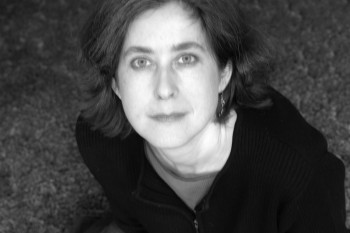Roads Taken and Not Taken: Dawn Potter '86

Details
I was not a star student at Haverford, and neither were my closest friends. We were a distracted, volatile bunch, up all night with our Clash and Tammy Wynette records. But if we were a mess academically, we were also fully aware of a parallel education in loss and love, though it seemed likely to get us nowhere as adults.
In an academically prestigious school, it can be hard to cope with one's inability to conform to the studious model that most other students display so competently. For me, the fact that I had embodied that model in high school made the situation even more distressing. Yet even as I fretted, I was reading, reading, reading. During my years at Haverford, I read every novel by Dickens, every novel by Austen, Tolstoy's War and Peace at least twice. Simply, I needed to read, even if the books had no relevance to the courses I was taking. This is not to imply that my classes were valueless, for several were vital. I think particularly of freshman English with Joanne Hutchinson, where we memorized the opening of Chaucer's Canterbury Tales, lines that will stay with me till I die. I think also of Bob Butman, who pressed us to envision literature not as scholarship but as an extension of our humanity.
Bob was, in Virginia Woolf's terms, a common reader,“guided by an instinct to create for himself, out of whatever scraps he [could] come by, some kind of whole.” I've taken his lesson to heart; for since graduating from Haverford, I've never gone back to school. I have no advanced degree, no academic affiliation. Instead, I've slowly learned, with much self-doubt, to follow a private, idiosyncratic route into books and the imagination.
After graduation, I worked for a year as a reading instructor in Massachusetts, another year as the herd manager on a Vermont dairy farm. I spent a few years in the editorial offices of a Rhode Island textbook publisher. Eventually I migrated to Maine, where, for the past sixteen years, I've lived in the small, rural, poverty-ridden town of Harmony. Here in the woods I've raised two sons with my husband, photographer Thomas Birtwistle (a former member of the class of 1987), meanwhile working as a freelance editor, a substitute music teacher, and a visiting poet in the schools. Along the way, I've written and published two collections of poetry and a memoir.
At every turn of the road, I've met another person struggling to link eye with ear with hand with mind with heart—for instance, the Harmony eleven-year-old who can't write his name but whose words, dictated to me as his amanuensis, nonetheless strive to delineate his world.“Big heifers in the corn again,” he tells me.“And them horses is hungry.” I write down his words and read them back to him. He smiles: Yes, that's right; that's what he meant. He thought hard about what he knew best, he searched for the precise words to describe that knowledge, and now the vision within that language belongs to him. This is the essence of learning, and of longing to learn. The fire burns: We stoke its flame.
Dawn Potter's most recent book is Tracing Paradise: Two Years in Harmony with John Milton (University of Massachusetts Press, 2009). For more about Dawn and her work, go to dlpotter.blogspot.com.



